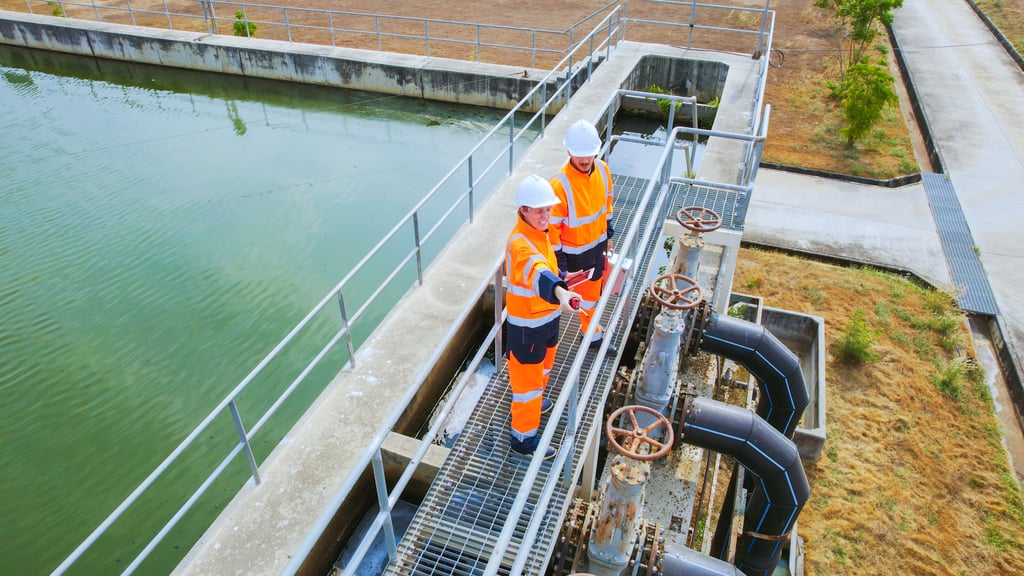As organisations worldwide face growing demands to address their environmental impact, Olga Rivas, ESG expert at LRQA, explores how legislative changes are bringing carbon reporting to the forefront of business strategy.
For years, emissions reporting was largely a voluntary effort, led by environmentally conscious companies and driven by corporate social responsibility. Today, however, the landscape is shifting rapidly. With new legislation turning voluntary initiatives into mandatory obligations, companies face a transformed accountability environment—one that demands rigorous attention to greenhouse gas (GHG) emissions across their entire value chain, especially Scope 3. “Legislation is no longer just a driver for compliance; it’s a catalyst for real change,” says Olga. “While the shift to mandatory reporting is challenging, it’s also a powerful opportunity for businesses to position themselves as sustainability leaders.”
Key legislative milestones in carbon reporting
The journey from voluntary to mandatory carbon reporting has been shaped by significant legislative milestones. Early regulations such as the Kyoto Protocol and Paris Agreement, laid the foundation for global climate action. The 2015 Paris Agreement marked a turning point, driving a wave of corporate sustainability pledges as businesses responded to the call to limit global warming to 1.5°C–2°C by significantly reducing emissions.
More recently, mandatory requirements have taken centre stage. The European Union’s Corporate Sustainability Reporting Directive (CSRD) represents a major step toward standardising sustainability disclosures for large companies operating in the EU. Under this directive, companies must report on environmental impacts, including carbon emissions, using a consistent framework from 2024. Similarly, in the United States, the Securities and Exchange Commission (SEC) is advancing climate disclosure rules aimed at establishing clear standards for public companies to report GHG emissions and climate risks.
“These milestones are more than regulatory hurdles; they’re part of a global effort to drive accountability and measurable action,” explains Olga. “By embracing these changes, organisations can contribute to a coordinated approach to tackling climate change while ensuring they remain competitive in a rapidly evolving landscape.”
What is driving the change?
The shift from voluntary to mandatory reporting is being driven by several key factors. One of the most significant is the growing recognition of climate-related risks within the financial sector. Investors are increasingly attuned to these risks and are demanding greater transparency from businesses to assess their long-term viability. “Investors want data they can trust,” says Olga. “Transparent carbon reporting is now integral to financial decision-making and a company’s perceived resilience.”
Public demand for accountability is also accelerating the shift. Customers, particularly younger demographics, are aligning their spending with sustainability values and expect organisations to demonstrate responsibility for their environmental footprint. Governments, too, recognise the need for robust frameworks to ensure emissions reductions align with international targets, such as those set out in the Paris Agreement.
“Mandatory reporting is not just about meeting regulatory requirements,” Olga adds. “It’s about responding to growing stakeholder expectations and building trust with both consumers and investors.”
Challenges and opportunities for organisations
For many organisations, the shift to mandatory carbon reporting brings both significant challenges and valuable opportunities. Collecting and verifying GHG data, particularly for Scope 3 emissions, is one of the most complex aspects of compliance. Scope 3 emissions often originate from activities beyond a company’s direct control, involving numerous third-party suppliers and varying data standards.
“This is where many organisations struggle,” says Olga. “Accurate data collection requires more than technology; it requires collaboration, consistency and sometimes rethinking how supplier relationships are managed.”
Despite these challenges, companies that invest in robust reporting frameworks stand to gain substantial benefits. Organisations that lead in GHG reporting and reduction can enhance their reputation, align with sustainability-minded investors and uncover opportunities to optimise operations and reduce costs. “The rewards of getting this right are immense,” Olga notes. “By acting now, businesses can position themselves as trailblazers in a field that’s becoming critical to long-term success.”
Impact on supply chains
Mandatory reporting has far-reaching implications for supply chains. With Scope 3 emissions often accounting for a significant portion of an organisation’s carbon footprint, businesses must extend transparency and accountability across their value chain. This increased focus is expected to heighten the demand for supplier engagement, data collection and collaboration.
“Supply chain engagement is no longer optional,” Olga explains. “It’s a necessary step in meeting reporting requirements and driving emissions reductions. Companies that build strong relationships with their suppliers will not only achieve compliance but also create shared value and innovation.”
By working closely with suppliers, organisations are finding ways to improve data accuracy and implement joint emissions-reduction initiatives. These efforts are essential to making meaningful progress on Scope 3 emissions and meeting net-zero commitments.
Navigating the complexities of mandatory carbon reporting requires expertise and a tailored approach. “At LRQA, we partner with organisations to provide the clarity and support they need,” says Olga. “Whether it’s GHG verification, Scope 3 assessments or guidance on evolving frameworks, we’re here to help businesses turn compliance challenges into opportunities for growth.”
By combining technical expertise with a deep understanding of regulatory landscapes, LRQA enables organisations to transition smoothly into this new era of accountability, building resilience and credibility along the way.
Find out more about how LRQA can support your journey:
Contact us








